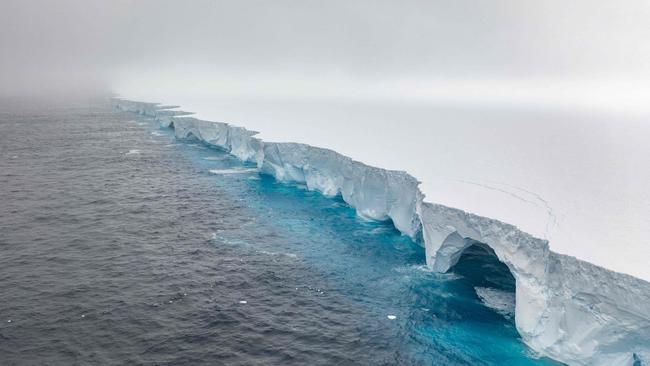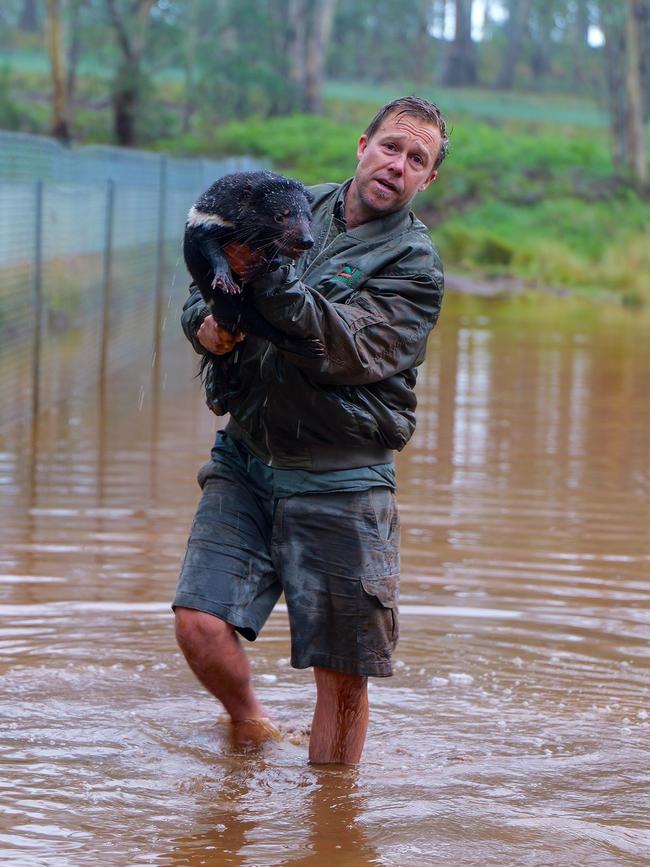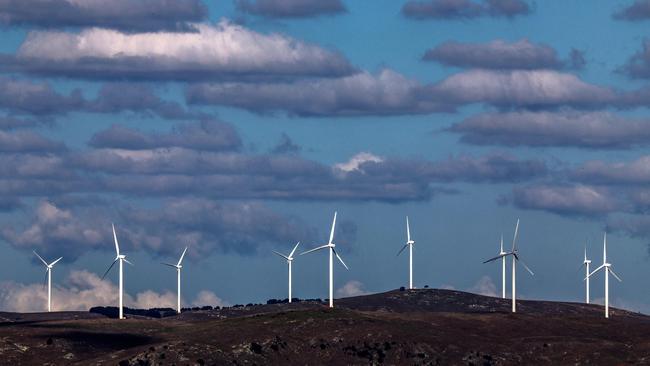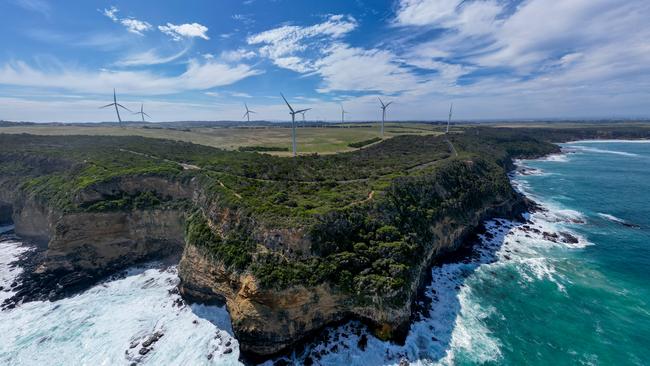The climate science says we’re fooling ourselves
The cost of ‘climate action’ is high. If it did what the zealots pretend, saving our beautiful planet from impending doom, it would be worth the communal sacrifice, but there is no evidence or prospect of any benefit.

In fervent meetings at the Great Hall of the People in Beijing, corridor catch-ups between executive advisers in the White House, multi-party dealings in New Delhi and presidential briefings from Jakarta to Abuja, you can just imagine them speaking with relief about political events in Australia.

That island continent in the southern hemisphere, where fully one-third of 1 per cent of the world’s population lives, they would have noted earnestly, has just returned a green-left government and will get the global climate crisis under control.
Just like Barack Obama’s boast when he won the Democrat nomination in 2008, “this was the moment when the rise of the oceans began to slow and our planet began to heal”. Australia’s Anthony Albanese was going to “deliver on climate change”.
The conceit and absurdity of our country’s political obsession with global warming is so bizarre that it is more Monty Python than Yes, Prime Minister. Yet it is an ongoing tragedy that is undercutting our prosperity and up-ending our politics.
Seldom have so many people sacrificed so much, trying to do so little, for no discernible gain. Futility meets delusion.
Yet here we are again. And it is about to get worse, with Labor doubling down on its failing renewables experiment and the Coalition returning to its climate wars like rats returning for cheese and an electric shock (if the wind is blowing).
From our political leaders we might expect policy assessments to follow the rational approach of cost-benefit analysis. Or we could appeal to their Hippocratic sensibilities to “first, do no harm”.
Instead, we have an emotive, even quasi-religious commitment to righteous climate actions, regardless of outcomes and largely for the sake of appearances.
We must be seen to do our bit, they sermonise, wilfully ignoring the burdens imposed on their fellow citizens or the cold, hard, scientific reality that their virtue-driven engineering can have no measurable effect on the mechanism they are aiming to control – climate.

We still have heatwaves and bushfires. They claim we have more of them, but the data bears that out only if we revise downwards what has transpired previously.
They say we have more cyclones, but the record stubbornly begs to differ. And even though they said our dams would dry up and our rivers would not run again, we still have floods, bad floods.
None of these observations is to deny the science. Quite the opposite; it is a plea to stick to scientific fact.
I challenge any Labor, Liberal, Nationals or teal politician to commission the parliamentary library to provide a total estimate of local, state and federal government spending on emissions reductions policies. The rebates, subsidies, grants and taxes; the solar panel giveaways and electric vehicle incentives; the transmission lines, wind turbines, solar farms, community and large-scale batteries; the demand management payments, feed-in tariffs, conferences, overseas delegations and foreign aid projects; the advertising and marketing campaigns; the redundancy payments to former coal-fired power plant workers and the compensation payments to keep some coal-fired generation running – the whole shebang.
The tally would certainly top $100bn, possibly $200bn or even $300bn, and we have only just begun. Reputable estimates suggest the entire “transition” – assuming it can ever happen – will cost $1 trillion.
And then there is the opportunity cost.
What else could have been done with all the money, what companies and industries might have stayed and invested on our shores if we had not imposed escalating energy costs, turning our natural energy advantage into our achilles heel?
What of the families and small businesses burdened by unprecedented electricity prices? What difficult life decisions or missed chances might they have avoided without this power price pressure?
The cost of “climate action” is high. If it did what the zealots pretend, saving our beautiful planet from impending doom, it would be worth the communal sacrifice, but there is no evidence or prospect of any benefit.
The aim of reducing emissions has been met, with the latest quarterly report showing Australia’s emissions down by 29 per cent since 2005. But, scientifically, this can do nothing to achieve the aim of making the climate more benign. And let us be clear, this is the only aim of the policies.
As Albanese put it in Tasmania in October 2022, “with more frequent and intense natural disasters occurring … we need to act on climate change”.
In the ABC’s election debate in April the Prime Minister said there was a “cost to our environment of not acting on climate change” and that his government was “acting on it” and would “deliver on climate change”.
This is nonsense.
Nothing Albanese or his government has done or will do will have the slightest impact on our climate – this is the great lie of all this rhetoric and wasted effort.
Global emissions continue to rise, so that the destruction of our once reliable and cheap electricity grid has had zero impact on the climate.
We need to stop kidding ourselves. Alarmists often say the cost of not acting is higher than the cost of acting, but they provide no figures or facts to back up this glib line.
Back in 2018 Alan Finkel, the nation’s chief scientist at the time, said if we shut down our whole country so that no human being in Australia produced a single gram of greenhouse gas emissions the impact on the climate would be “virtually nothing”.
No scientist could honestly say otherwise; it is the scientific fact in a country that produces 1 per cent of global emissions.
All around us is a national political, media and academic delusion that playing around with solar panels is changing the climate. Yet the same people, with no hint of irony, say we should follow the science.

The science says our actions are inconsequential. The only argument to support our suite of policies is to claim a kind of first mover’s advantage in leading the way for global action – but that is just not happening.
We persist with our UN-inspired net zero by 2050 evangelism while the largest emitters in the world – China, the US, Brazil, Russia, India, Indonesia, Saudi Arabia and Iran – are not signed up to that target. These countries make up more than 64 per cent of all emissions – almost two-thirds of global emissions – and their emissions continue to rise, swamping our cuts many times over and rendering our efforts ever more meaningless.
Given our size, our natural energy advantage and the prosperity we have built across the past two centuries, our smartest move would be to watch global action, reduce emissions where we can and act in our own best interests rather than those of the UN poseurs. If carbon neutrality remained imperative we would take our time and switch to proven and reliable nuclear power.
Instead, we continue to inflict pain on ourselves for no gain. If carbon dioxide emissions are changing the climate in ways that are deleterious for us, we might be better off spending $1 trillion on mitigating infrastructure such as dams, irrigation and sea walls.
Or we could keep sending our money to China so they can use our coal and ore to manufacture solar panels and wind turbines to sell back to us.
Our climate sanctimony has us, economically and environmentally, urinating into the wind. It is difficult to comprehend how sentient beings could devise such inexplicable self-harm.
Teal MP Zali Steggall says if we all took the attitude that our cuts made no difference “we would fail to limit warming to a safe level” – but we are achieving nothing. Steggall also says that because of the threat of bushfires “we urgently need plans to protect our communities” – well, yes, but what do you think will protect us best from bushfires: firebreaks and fuel reduction or renewable energy?
This weekend across South Australia, much of Victoria and western NSW severe drought grinds on. On the other side of the Great Divide some areas of the NSW coast are experiencing their worst flooding on record, wreaking havoc and taking lives.
To deal with these vagaries we need reliable energy and economic resilience.
Instead, we get climate alarmism – where the only response to a perpetual climate challenge is to accelerate an expensive and unwieldy transition to renewables that increases the expense of everything, undermines the reliable supply of energy, makes our economy weaker and, for all that, cannot make a jot of difference to the climate.
You could not make this up. Dorothea Mackellar needs rewriting: I love a sunburnt country, a land of sweeping plains, of ragged mountain ranges, of droughts and flooding rains. I love her vast transmission lines, turbines far as eyes can see, her solar farms and blackouts, the woke, virtue-signalling land for me.





